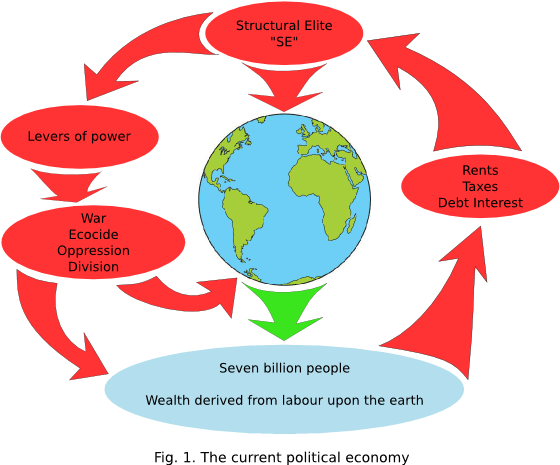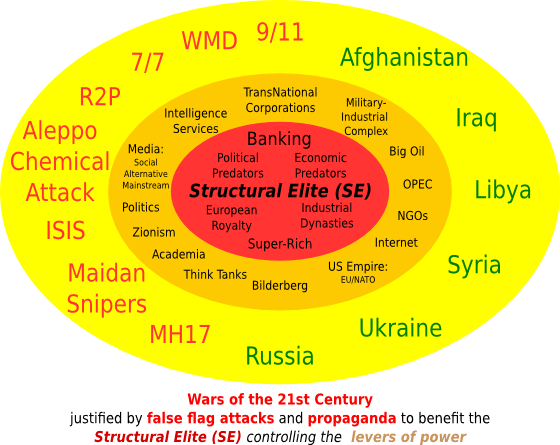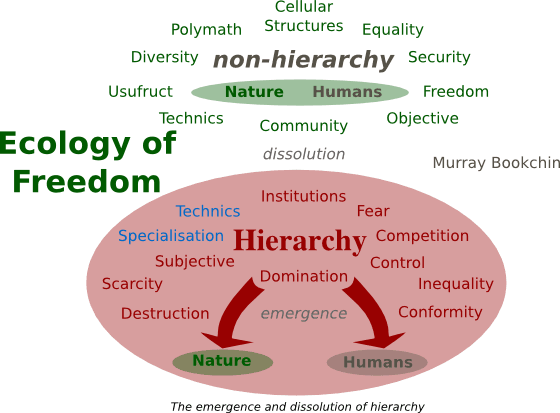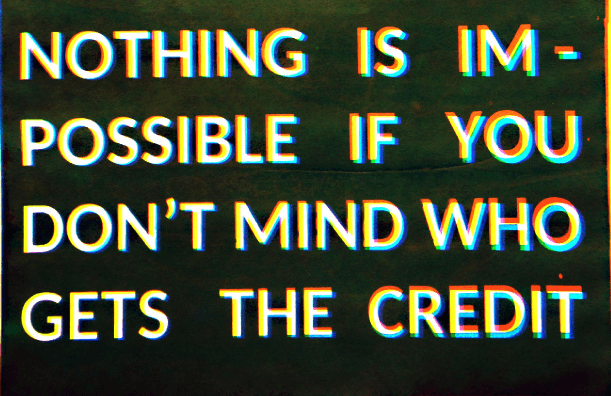Estimated reading time: 8 minutes
Introduction: The term Political Economy has been expunged from contemporary discourse; politics and economics are regarded as separate, specialist subjects. However, like wealth and power, the two are inextricably linked. This was well understood in the past: most great thinkers were polymaths, eg. Benjamin Franklin and Leonardo da Vinci. Today we have “specialists” and information is siloed compelling us to take information on trust. Critical Thinking’s research and analysis is the work of thousands of individuals and groups, both contemporary and historic and draws on data and understanding from the current and previous civilisations. Critical Thinking comprises a small group of individuals in London interacting with groups and individuals around the world. It is the synthesis of this wide analysis of information and ideas that is presented here.
Critical Thinking started by examining symptoms such as the sub-prime crisis, wars, environmental destruction and identified three fundamental flaws in the economic system. These flaws concentrate power within the hands of a few. We’re currently developing a Unified Theory of Political Economy (UTOPE), exploring the emergence of hierarchy, its dissolution and the benefits of non-hierarchical organisation.
We developed three fundamental economic principles which can only take root through free thinking. Wide understanding of Political Economy is essential to create the will and momentum for radical, fundamental change. The challenge is to move from a world of competitive scarcity to one of cooperative abundance.
Why Critical Thinking? We’re conditioned from birth into our worldview through education and media but our understanding of how the world works is far removed from reality. 90% of US media is owned by just 6 corporations controlled by the same forces as direct the BBC’s agenda. Adam Curtis’s The Century of the Self shows how our behaviour and attitudes have been shaped by media. Children aren’t educated but trained to give the “right answers” and not to challenge authority; incentives and penalties ensure conditioning continues into universities and adult working life. MK Ultra is a CIA program for mass manipulation using drugs, celebrity and other techniques to divert and distract. Propaganda shapes public opinion during or after events. Tom Secker, a researcher of 7/7, talks about predictive programming and describes how the BBC series, Spooks, was used to “train” the audience in advance with scenarios containing elements of the official story of 7/7. Challenging behaviour in schools is treated with drugs. Toxic metals sprayed into the atmosphere could account for rising Alzheimer’s.
Opportunities to think critically have been severely restricted, particularly in academia. Many respected academics have lost tenure, status and reputation through challenging the directed consensus. If we want to reverse the disastrous, destructive and abusive consequences of the Political Economy we have to think critically.
Why a Free University? Any question maybe asked; there are no taboos or limits on the pursuit of knowledge for its own sake. No incentives, penalties or conflicts of interest.
Three fundamental flaws in the economic system
Henry George’s Progress and Poverty identified land as a primary driver of inequality and poverty. Like other commons (resources, knowledge, plants, the radio spectrum) land belongs to no-one but should be available for all to access its fruits and the means to life. Privatisation and enclosures have reduced the share of wealth available to us all from land (in the UK) to less than 4% according to Fred Harrison in The Traumatised Society.
Deprived of the means to life, the masses were driven into factories to survive but as productivity soared the need for labour plummeted. The video Humans Need Not Apply shows how most jobs are under threat. People don’t need jobs, they need their share of the wealth of the commons.
Interest is the wrecking machine at the heart of the economic system according to the late Margrit Kennedy. Interest and Inflation Free Money shows how: interest drives inequality – it is a function of interest; the interest based economy demands exponential growth (which has potentially fatal consequences as explained by Dr Albert Bartlett); interest drives unsustainable debt growth; and environmental destruction, all because we give money a “time value” through interest. We need a monetary system which conforms to natural law, a system which is not about growth per se but which delivers prosperity, justice and freedom.
Concentrated Power: These three flaws concentrate wealth and power in the hands of landowners and bankers while the rest of us compete for a reducing share of the diminishing wealth of the planet. This handful of people, we’ve termed the Structural Elite, comprises eight banking families, European royalty, industrial dynasties, the super-rich, economic and political predators. Controlling the levers of power they foment division, oppression, ecocide and wars while extracting the wealth created by some seven billion humans by collecting rents, interest and taxes.
Wars of the 21st Century: Since 9/11, propaganda, misdirection, distraction and Structural Elite control of transnational corporations, politics, economics, academia, media, the military-security complex, think tanks, NGOs, communications, and intergovernmental institutions (UN, EU etc) have fomented wars in Afghanistan, Iraq, Libya, Syria and Ukraine.
Overwhelming evidence indicates: 9/11 was an “inside job”; Saddam had no weapons of mass destruction; Gaddafi wasn’t about to massacre his own people; the Aleppo chemical attack wasn’t Assad killing his own people but opposition fighters, aided and abetted by NATO; ISIS was created and is supported by NATO, Israel, Turkey and the Arabian Gulf monarchies; unidentified snipers killed police and civilians in the Maidan, Kiev, not government forces – the National Endowment for Democracy (NED), funded by US Congress, spent some $5bn conduct ing regime change to install a puppet, fascist, criminal cabal to run Ukraine for the benefit of the Structural Elite.
Russia was accused of helping resistance forces in eastern Ukraine bring down MH17 but evidence points to Ukrainian jets shooting the plane down – US, NATO etc. have been complicit in the subsequent cover-up and continue to beat the drums for war against Russia.
Perpetual war is the objective. Destabilisation of the Middle East, for example, allows Israel to dominate the region.
UTOPE
Accumulated research and analysis has led to the development of a Unified Theory of Political Economy (UTOPE) which contains three elements:
- the role of hierarchy in determining who designs, and benefits from, the political economy
- control and distribution of the wealth of the commons
- interest is a corrosive, abusive and destructive mechanism
Hierarchy
Murray Bookchin‘s Ecology of Freedom points to the domination of nature by applying agricultural “technics” creating a surplus, the control of which led to domination of humans.
Pre-literate communities were invariably of nature rather than seeing themselves above it. The concept and language of domination emerge with the evolution of agriculture. It was at the point of surplus that institutional hierarchy emerged through its control and distribution.
Through studying nature’s cycles and phenomena, the old accumulated understanding from which they could derive status to compensate for their reduced physical capacity; thus the wisdom of the elders evolved as an age hierarchy. Superstition, in the absence of scientific insights, flourished and typically the elderly could identify as shamen or witchdoctors which led to religious hierarchies claiming access to the divine. As tribes or groups grew and came into contact/conflict with others, defence became necessary which developed into aggression; the resulting warrior class were invariably men which led to gender discrimination and patriarchal societies.
Surplus facilitated specialisation from which emerged institutional hierarchy; activities became less communal, non-hierarchical and amateur but evolved into a stratified pyramid of wealth and power administered by a professional, technocratic class serving the interests of the Structural Elite at the apex. Nowhere is this more significant than among the political class which creates laws to shape the evolving political economy to benefit the Structural Elite which control all the other levers of power.
Features of the current political economy are: domination of nature and humans; corrupt, hierarchical institutions; competition; scarcity; inequality; control; conformity; fear; and subjective, emotional judgement.
We have the accumulated knowledge and wisdom available to optimise our use of technology to transform to a non-hierarchical political economy fostering: community, diversity, freedom, equality, usufruct (sharing) and cooperation among a species of self-managing polymaths. Decision making would be devolved to local communities as far as possible while agreements at regional, national and global levels would be only made with people’s consent. Cellular structures with revolving delegates rather than elected representatives are an essential feature of a non-hierarchical world.
While Murray Bookchin’s Ecology of Freedom provides the historical context and intellectual foundation for this transition, Federic Laloux’s research and book, Reinventing Organisations show case studies of successful, complex, self-managing businesses and non-profit organisations. The common principles used by these entities would easily translate into a framework for local, regional, national and global organisation.
Transformation requires adherence to three fundamental principles:
- Sharing the wealth of the commons, to fund public services and an
- Unconditional Citizens Dividend
- Make debt unenforcible in law, prohibit interest (Debt would revert to being a social construct rather than a weapon of wealth extraction, oppression and destruction).
Cause for Optimism
Everyone alive to today is uniquely placed to participate in developing a just and free political economy. Never before have we had access to so much information nor the ability to communicate globally, people to people, rather than through corrupt, hierarchical institutions. Much of the work on solutions has already been done and we can draw on analysis and sound, proven principles tested over time and corroborated by evidence from other civilisations.
There is growing awareness of the flaws in the economic system and people are looking for fundamental political change. The key to distributed power is wider knowledge and understanding which is why we all need to talk to friends, family and everyone we know, to ask questions and explore the three elements of UTOPE: hierarchy, the commons and interest. Share knowledge, question everything you are told by the media, politicians or pundits; compare and contrast information from multiple, independent sources. Learn which sources are most reliable on which issues. There are few that have explored the political economy to sufficient depth and breadth.
“Nothing is impossible if you don’t mind who gets the credit”
We’ve been trained in the last half-century to self promote. Fifty years ago, bragging or “blowing your own trumpet” was frowned upon. At school “bigheads” would be cut down to size by their peers. Claiming credit or flaunting success was regarded as vulgar but today we have to selfpromote to survive and celebrity is dangled as an escape from mundane, stressful, unfulfilled lives. We exaggerate on CVs to get a job; we self-promote through social media and elsewhere. Xfactor facilitates ritual humiliation of many seeking celebrity to give their lives meaning. Premiership football has transformed what started as a healthy, friendly, community activity into a competitive, narcissistic distraction which epitomises the inequalities within our political economy.
We are genetically related, interdependent and hard-wired to cooperate but incentives and penalties within the political economy compel us to compete to survive. If we take away those incentives and penalties, by eliminating the three fundamental flaws in the political economy, the bounty of cooperation will flourish and flow to everyone. By ensuring everyone is looked after, we will all be looked after. Darwin’s theory of evolution wasn’t principally based on survival of the fittest but about working in harmony with nature. Current evolutionary biology confirms that cooperation is an essential element of evolution. Pre-literate societies could only survive by cooperating; Frederic Laloux’s work shows how self-management is uniquely successful in organising highly complex business and service operations. But we need to cease to mind who gets credit for success.
If we shed ideology to re-examine our worldview with an open mind, we can achieve a common understanding of how to transform our competitive political economy of scarcity into a cooperative global community living in a world of abundance.
- Tagged:
- ethics
- philosophy



